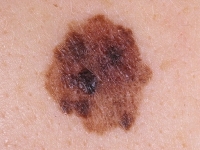Inflammation of the lungs: how not to miss spring pneumonia
 Spring colds, unfortunately, are often complicated by pneumonia. The symptoms of pneumonia or pneumonia, some people do not attach much importance, even when, after improving the condition, fever reappears, cough increases, and then shortness of breath. Pneumonia needs time to diagnose and properly treat, and even better – to prevent the development of inflammatory processes in the lungs.
Spring colds, unfortunately, are often complicated by pneumonia. The symptoms of pneumonia or pneumonia, some people do not attach much importance, even when, after improving the condition, fever reappears, cough increases, and then shortness of breath. Pneumonia needs time to diagnose and properly treat, and even better – to prevent the development of inflammatory processes in the lungs.
Pneumonia: why some get sick and others don’t
According to medical statistics, almost half of cases of pneumonia are caused by viruses, the same as with the incidence of SARS and influenza. Viral pneumonia often affects children. Bacterial pneumonia is more susceptible to adults: inflammation of the lungs of a bacterial nature causes pneumococci, staphylococci, streptococci, etc. Signs of bacterial pneumonia are often less pronounced, so the onset of this type of disease is easy to miss. Often, bacterial pneumonia develops as a complication of a cold or ARVI.
If a person has a weakened immune system, there are chronic diseases, etc., then close communication with a sick person can lead to an exchange of pathogenic organisms and the development of pneumonia. With the penetration of infection into the body of a healthy person who has strong immunity, the risk of developing pneumonia is much less: along with cough and mucus, the pathogens are removed from the lungs, and the body is quickly restored after an illness. When immunity is weakened, the body is worse at coping with this task. Smokers are also at risk for pneumonia because they have impaired sputum removal from the lungs. Smokers have a common cold often exacerbated by bronchitis (or they already have chronic bronchitis of the smoker), and then often bronchitis is complicated by pneumonia.
How to catch pneumonia in time
The main symptoms of pneumonia are as follows:
Subfebrile or body temperature 37.2 – 37.5, which lasts for several days or longer, with viral pneumonia, the temperature can reach 38-40 degrees
Cough, appeared dyspnea, feeling of discomfort in the chest area
Weakness, fatigue.
Sometimes with pneumonia, coughing may not be observed, and the deterioration of well-being occurs after suffering a cold. It is important to consult a doctor in time to distinguish pneumonia from bronchitis, in which cough, general weakness, etc. are also observed. It is not enough one history (collection of data on the state of health) from the words of the patient, the specialist should listen to the lungs, determine the nature of wheezing, appoint an x-ray of the lungs (fluorography), blood test. If, after recovery and normal temperature (from 36 to 37), the subfebrile temperature again “came”, then you should pass the fluorography and take the tests.
Prevention of pneumonia: how to prevent complications
With a cold, even mild, (and even more with ARVI) should seriously approach treatment, not to carry the disease “on his feet”, to comply with bed rest and drink more fluids. It is important to prevent complications – the development of bronchitis, sinusitis, etc., and in the future – possible pneumonia. Self-medication is dangerous: a person often does not know that he has pneumonia, begins to take medicines himself, further aggravating the condition. Only a doctor can choose the right medicine based on the exact diagnosis and the results of the patient’s examination.
A healthy lifestyle, a balanced diet, physical activity – the key to strong immunity, which helps a person to cope with viruses and bacteria. If you have had pneumonia and have gone on an amendment, then try to fully and efficiently eat, rest, perform breathing exercises, which the doctor will advise to restore the lungs, do not overcool and do not accumulate stress.



